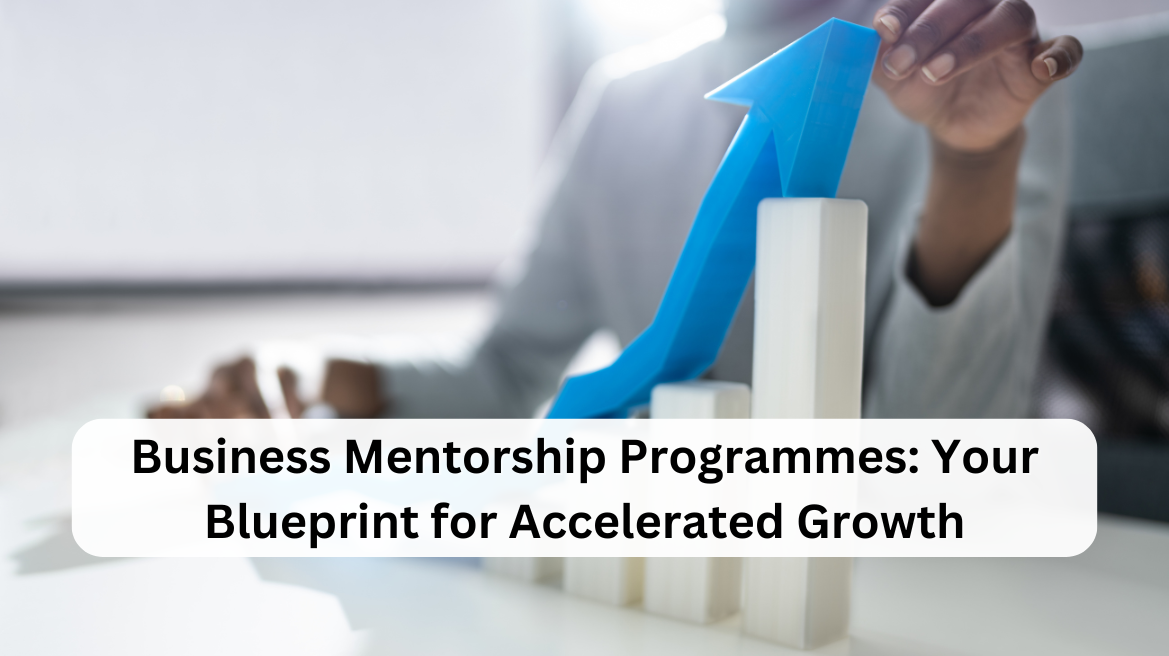Every entrepreneur encounters moments when a fresh perspective, hard-earned wisdom or a timely connection can be the difference between plateauing and scaling. Business mentorship programmes bring together seasoned experts and ambitious founders in a structured environment, ensuring you learn faster, sidestep common pitfalls and unlock doors that would otherwise remain closed.
A business mentorship programme pairs you with an experienced leader—often on a one-to-one basis or within a small cohort—who offers guidance tailored to your specific challenges. These programmes typically include:
- Regular mentor-mentee meetings (in person or virtual)
- Goal-setting workshops to clarify priorities
- Masterclasses on finance, marketing, operations or leadership
- Peer-to-peer forums for shared lessons and networking
By combining expert insight with practical tools, mentorship programmes accelerate strategic learning and decision-making.
Key Benefits
- Clarity and Focus
Mentors help you hone your objectives, turning vague ambitions into a clear, actionable roadmap.
- Fast-Tracked Learning
Avoid trial-and-error. Learn from your mentor’s successes—and their mistakes—so you can implement proven tactics straight away.
- Expanded Networks
Access introductions to potential clients, investors or partners that would take years to cultivate on your own.
- Accountability and Confidence
Regular check-ins ensure you stick to your plans, while mentors bolster your belief in tackling big challenges.
- One-to-One Mentorship
Pairing a single mentee with a dedicated mentor for highly personalised support.
- Group or Cohort Mentoring
Small groups of entrepreneurs learn together under the guidance of one or more mentors, fostering peer collaboration.
- Peer Mentoring Circles
Founders at similar stages meet regularly to share experiences, challenges and insights without a centralised expert.
- Corporate-Sponsored Schemes
Run by large companies or trade bodies, these often combine mentoring with workshops, grants or office space.
- Virtual Platforms
Online networks match mentors and mentees globally, offering flexibility for remote businesses.
Choosing the Right Programme
- Align with Your Goals
Seek mentors whose expertise matches your growth stage—whether that’s refining your business model, scaling operations or entering new markets.
- Assess the Structure
Some programmes emphasise formal curricula and milestones; others rely on ad-hoc sessions. Choose the format that fits your working style.
- Check Track Record
Look for testimonials, success metrics or alumni case studies. A high-quality programme will share the tangible outcomes participants have achieved.
- Consider Time Commitment
Ensure you can meet the minimum session requirements and actively prepare—mentoring works best when you arrive ready with questions and updates.
Making the Most of Your Mentorship
- Prepare in Advance
Draft clear agendas: what progress you’ve made, what roadblocks you’re facing and what decisions lie ahead.
- Be Open and Honest
Share financials, customer feedback and internal team issues candidly. Vulnerability builds stronger, more productive relationships.
- Act on Feedback Quickly
Implement agreed actions and report back. Demonstrating results fosters deeper trust and richer guidance.
- Give Back
Contribute to peer forums, offer introductions from your network and celebrate others’ wins. A culture of reciprocity enhances the entire community.
Emerging Trends in Mentorship
- Micro-Mentoring Sessions
Short, focused 30-minute calls for rapid problem–solving on a single topic, such as pricing strategy or recruitment.
- AI-Driven Matching
Platforms using algorithms to pair mentors and mentees based on personality traits, industry experience and learning preferences.
- Hybrid Models
Blended programmes combining in-person intensives with virtual follow-ups, balancing depth of connection with convenience.
- Sector-Specific Cohorts
Narrowly focused groups—tech start-ups, creative industries or social enterprises—allow mentors to dive deep into niche challenges.
A Real-Life Example: London Craft Collective
When London Craft Collective, a small artisan furniture co-operative, joined a local mentorship programme:
- They mapped out a three-phase growth plan with their mentor, combining workshop renovations with a direct-to-consumer e-commerce launch.
- Monthly masterclasses on sustainable sourcing helped them rebrand as eco-friendly creators, boosting their average order value by 20%.
- Peer-to-peer sessions sparked a collaboration with a neighbouring ceramics studio, opening a new product line and shared retail space.
Within nine months, turnover grew by 45% and their artisan network doubled in size.
Conclusion
Business mentorship programmes are far more than occasional advice sessions—they’re accelerator engines for your enterprise’s journey. By choosing the right format, engaging proactively and embracing emerging trends, you’ll harness a wealth of experience that transforms challenges into stepping stones. Ready to tap into a mentor’s insights and see your ambitions take flight? Explore the options available in your region and prepare to elevate your business.
For expert funding, business mentorship, business growth solutions, and entrepreneur programs, visit: The Entrepreneur Studio
Follow Us:
Facebook – https://www.facebook.com/people/The-Entrepreneur-Studio/61552810916102/
Instagram – https://www.instagram.com/theentrepreneurstudio/
Twitter – https://x.com/T_E_Studio
LinkedIn – https://www.linkedin.com/company/the-entrepreneur-studio/, Manmeet Abroll, Andrew Evans


